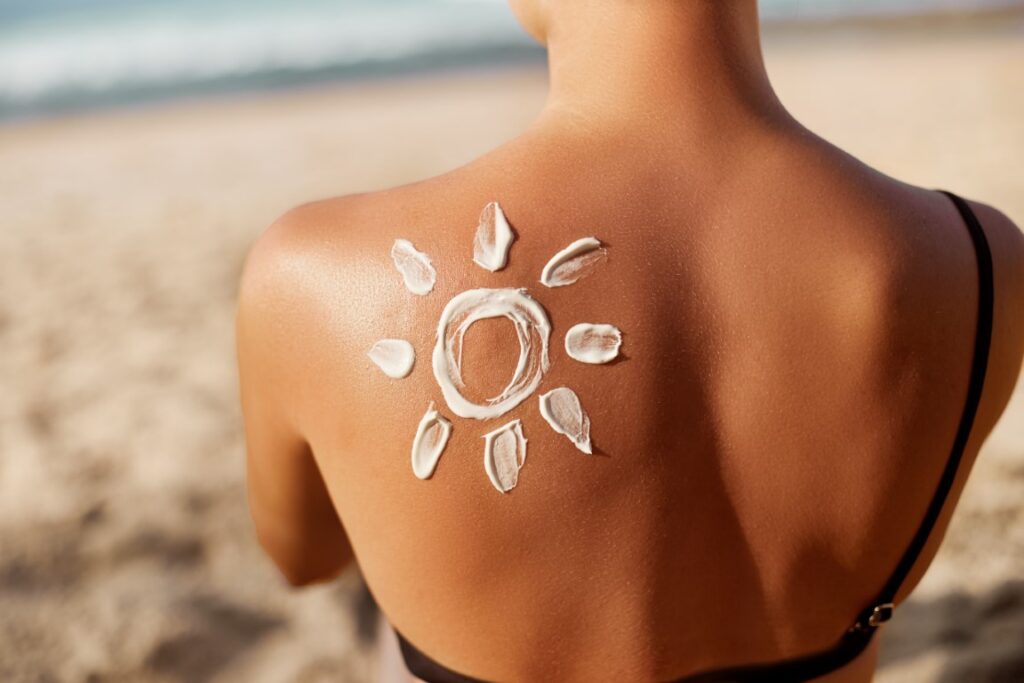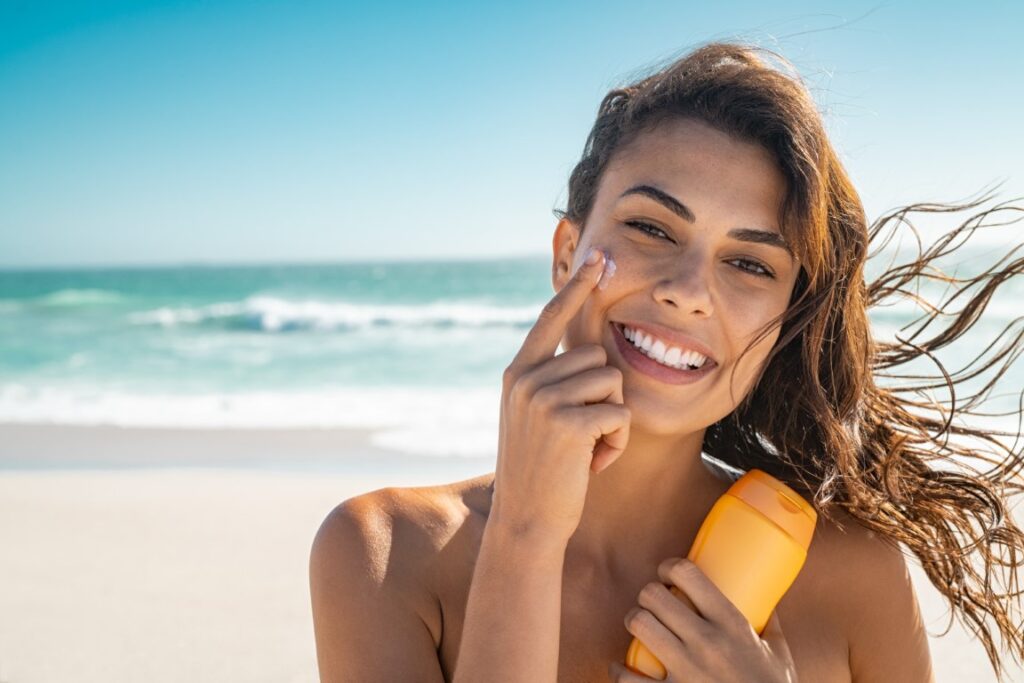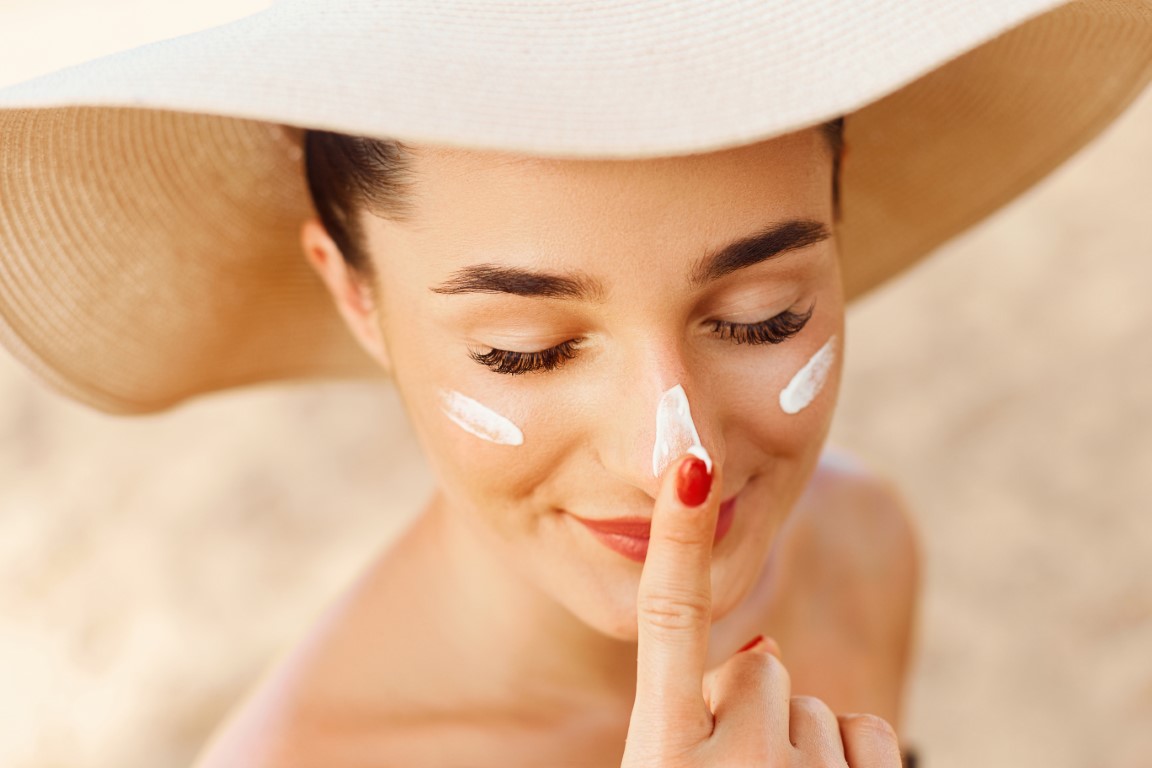Of course, the sun is the primary contributor to spring, summer, and early fall weather. With most great benefits, it gets you outside and keeps you there. You’re more active, your garden may be tip-top, and you have a gorgeous sun-kissed glow. Of course, it’s simple to go overboard. Beyond a shaded area under a tree or a large hat and sunglasses, you need protection.

What is a Natural Sunscreen?
It’s crucial to understand that no Federal body regulates the term “natural.” This implies that just because a brand claims to be natural, it may not be. The word is typically used to describe sunscreen creams that use zinc oxide and titanium dioxide as active ingredients. These minerals act as tiny mirrors to reflect the sun’s rays away.
However, sunscreen offers much more than just UV protection. Most are lotion or crème based, which means they contain oils and butter for smooth application to the skin. Avoid any products made from petroleum and choose natural oils if you want a “natural” product”.
How to choose the perfect natural sunscreen for you?
- Take a look at the active components. Specifically, you’re looking for zinc oxide, either by itself or in combination with titanium dioxide. Because zinc oxide has a broad-spectrum SPF, it will shield you from UVA and UVB radiation. Titanium dioxide shouldn’t be used as a stand-alone active component because it is only marginally effective against UVB, meaning it won’t shield you from all UV rays. However, it might increase the efficiency of zinc oxide.
- You’ll need to do some research if you’re seeking a more natural sunscreen. Sunscreen is not necessarily 100% natural because it contains natural active components. The vehicle, or more precisely all the other components of the sunscreen, might still be made of synthetic materials. It all depends on the kind of goods you want and your preferences.
- Even when you swim or perspire, water-resistant sunscreen keeps providing protection. No sunscreen, according to the FDA, is waterproof, and all formulations will ultimately wash off. The amount of time the sunscreen will stay effective when swimming or perspiring, as well as instructions for reapplication, must be listed on sunscreen labels.

- Choose a product with or without nanoparticles that has been micronized. You can get a sunscreen that absorbs more entirely and leaves little to no opacity on the skin by purchasing a product that bears the word “micronized,” either on the front or in the active components. Your final product will resemble synthetic sunscreens more in terms of appearance and texture thanks to this. On the other hand, you cannot rub in non-micronized or non-nano goods since they leave a white film on the skin’s surface.
- Choose a sunscreen that has a minimum of 30 SPF. This guarantees that you receive adequate protection for enough time. SPF can go up to 50+, however, after SPF 30, the improvement in sun protection is gradual.
Advantages of Natural sunscreens
- No toxicity: Titanium dioxide and zinc oxide, two mineral UV filters, are applied topically to the skin and do not enter the bloodstream. The skin absorbs several popular chemical UV sunscreen filters, which then enter the circulation.
- No annoyance: They are less prone to irritate the skin because they don’t include any hazardous chemicals, artificial colors, or other byproducts.
- Effectiveness overall: Earth’s natural resources have long been proven to be efficient. All that the skin needs to stay healthy is them. Benefit from keeping things straightforward.
- Overall health: Using natural skincare products gives your skin the cleanest form of ingredients available, which is good for your overall health. Your skin will remain radiant all year long with year-round UVA/UVB protection from head to toe.
There is a tonne of information about sunscreen and sun protection, both natural and artificial. Because there is so much conflicting evidence and a wide range of product choices, it can be a perplexing subject. However, keep in mind that the ideal sunscreen for you is one that you enjoy using and feels nice on your skin because you are more likely to apply it. And the best protection for you will come from using your sunscreen consistently.

